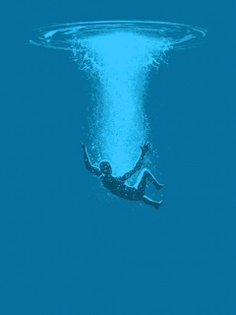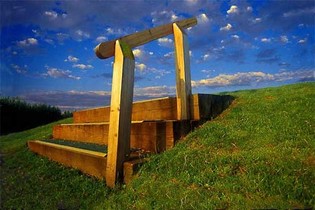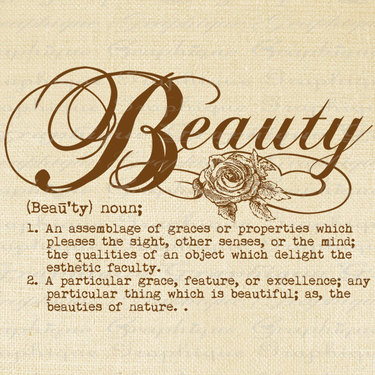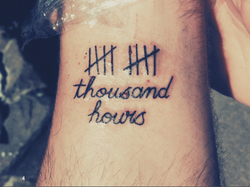-Thomas Merton

After all, we humans have been pouring out our stories of victory and tragedy, heartbreak and epiphany for thousands upon thousands of generations. Surely those brackish waters contain more than a little of the good stuff. The trick (perhaps) is to catch hold of a sufficiently buoyant bit of flotsam and a favorable current and then flow with it.
In other words, find a program that strikes you as true enough and right enough, and follow it to the best of your ability (rather than circling endlessly in a search for perfect wisdom, until you sink from perfect exhaustion).
I've been trying to do this ever since I was given the quote from Thomas Merton printed at the top of this post. "What we have to be is what we are." That little bit of wisdom struck me as so simple and so right. Give your gifts. Do what is in you to do. Become what you are. What if that's really it? The whole show? Wouldn't that be grand?
Since being given that little gem, I have: 1) seen the same advice printed at least a hundred different ways from a hundred different authors (thus affirming for me that it's worth heeding), and 2) realized it's a bit harder than it sounds.

I have to warn you though, I'm by no means an expert or a perfect success story, though I do think the program is working.
My journey has taken me from frustrated wanna-be writer/teacher/entrepreneur stuck in a numbing job to someone happily running a couple of small online teaching businesses, including one about writing, with a first novel on the way to print at the end of this year. That said, each month can still be a struggle to make ends meet and the road has been anything but smooth.
So...grab your grain of salt (or even a whole salt lick) and take this for whatever it's worth to you. (And please feel free to tell me in the comments if you agree or disagree with any of the following.)

The most common push-back I've heard to the idea of "becoming what you are" typically falls in at least one of three categories.
a) I don't have any worthwhile natural gifts or useful talents (or I don't know what they are)
b) What I want to do doesn't pay well (or at all)
c) Too many other people are trying to do what I want to do, so I could never be successful
My response to the first of those concerns is to focus on the "useful beauty" part. By "useful," I mean that someone else can get some kind of enjoyment, value or help from something you do or create. If there's anything you find yourself doing often and with ease that proves helpful to others in your life, then you have a gift to give.
If you tend to do it well enough or efficiently enough that your contribution has at least a little sparkle of artistry to it--something unique that sets it apart from when others do the same task more grudgingly or with less joy--than you've got the capacity to bring more beauty into this world. I'd even say you have the responsibility to do so.
To my thinking, beauty comes in endless variety, and has far less to do with aesthetic considerations than with the quality of workmanship. A spreadsheet or wooden spoon can be just as beautiful as a sonnet or silver dish when made by a master.
As to the money and competitor considerations, I think there are a million creative ways to fit your calling to a vocation and if you follow the next two steps, after a certain point the money and competition won't matter, except insofar as they spur you toward further and further creations of useful beauty.

This is where things get both incredibly difficult and blissfully simple. If you've never heard of the 10,000 hour rule, a quick internet search will give you troves of studies and elegies extolling the notion that greatness only comes after a certain amount of dedicated practice. I first learned about it in Malcolm Gladwell's Outliers, and commend that book to you.
Of course, this rule is tremendously hard not only because it's a heckuva lot of work but also because we're so well-trained in this culture to want rapid results. Many of us quit when we don't hit it big right away or when we bet everything on the hope of "making it" in six months or a year and then fall flat because we haven't put in our time.
So, put in the time.
10,000 hours = 5 years of 40-hr workweeks; 10 years if you're putting in 4 hours a day, 5 days a week; or (obviously) much longer if you're putting in much less.
But here's where the simple part comes in. Knowing it's going to take a while, you're free to let go of the pressure to perform. Just drop that weight from your shoulders like the useless burden it is. You don't have to be perfect. You don't even have to be all that good. You simply have to commit the time.
Don't expect success at the start. That expectation will wreck you. Prepare for a long haul.
If you can learn on someone else's dime, doing something at least similar to what you ultimately want to do, grab that opportunity like the gold it is, and remind yourself you're fulfilling your call simply by moving closer to it.
Take pleasure in your progress.
I also find it helpful--particularly when I'm wishing the world could just give me the money and time I need to focus on my art--to think about how many lottery winners have gone on to become brilliant writers or craftsmen or creators of any sort. Maybe there are a few, but I haven't heard of them. And yet, I'm willing to bet many of those winners had similar thoughts to mine before they hit their numbers. Oh, if only I had millions, I would just do X. But then they don't seem to do X when they get the millions. Are they all just talentless hacks cursed by a complete lack of inborn skill?
Or is the struggle part of the secret? Is the challenge of finding ways to build your talent over 10,000 hours part of what makes you ultimately successful? I think it must be.
In addition, the more we can focus on doing the things that do arise from the gifts we have, the less those hours will seem a chore. Indeed, they may start to seem a lot more like pure joy. By my rough calculations, I've got about 9,000 hours in on my writing, 10,000+ hours of teaching, and 8,000 of entrepreneuring. I haven't quite hit all my marks yet, but every day gets better and clearer and more rewarding as I try to bring these 3 callings into some kind of alignment.

Particularly during the 10,000 hours, it's easy to get greedy about our gifts, but it helps to remember they came to us unbidden. We have in us a capacity to do certain things better and with more beauty than others can do them. That's not something we earned. It's something we were simply given. That's a thing to be grateful for, not greedy about.
During the 10,000 hours (and beyond) our job is to give back. The primary reward can and should be the satisfaction of aligning with our essential selves. The output is for someone else. Yes, we need money also, and we will likely struggle to earn that, but the gift and the giving of the gift should remain as unencumbered by our grasping as possible. The great thing is: the more we let go of the need to get something from our giving, the more we tend to actually get.
There's another way in which this reminder about "the gift" is useful. I've known plenty of people who are working their 10,000 hours but, in my opinion at least, largely wasting them. They do so by clinging to the notion that their talent is for them. I think it's a reaction against the harshness of criticism and of exposing your gift before you've mastered it.
And because it's true we can go too far when taking others' critiques to heart (some of which will undeniably be flawed), some people convince themselves to shut out critiques altogether. The trouble with this is, if you ever want to receive a fair return on the talent you bring to the world, it has to prove valuable to others who will be the ones giving you something for it.
The selfish gift giver only gives people things they themselves want. These gifts, no matter how elaborate or expensive or fine, fail to delight their recipients. On the other hand, the person who listens--truly and deeply--to the desires and longings of others can give the simplest of gifts and those gifts will become the most treasured of all.
This doesn't mean you should try to adapt your talent to serve everybody all the time. That's another sure recipe for failure. But it does mean you should find those who long for what you have to give and listen to them; learn from them; honor them. Take them as your teachers as you do your 10,000 hours and more. Those to whom you give in this spirit, will eventually return to you the greatest gift imaginable: the gift of fully becoming that which you are.
 RSS Feed
RSS Feed